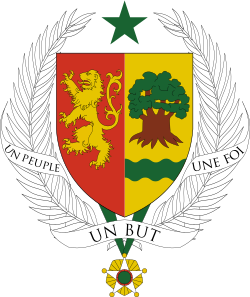 |
|---|
Visitors to Senegal require a visa unless they come from one of the visa exempt countries. [1] Visitors must hold passports that are valid for at least 6 months from the date of arrival.
 |
|---|
Visitors to Senegal require a visa unless they come from one of the visa exempt countries. [1] Visitors must hold passports that are valid for at least 6 months from the date of arrival.

Citizens of the following countries can visit Senegal without a visa for up to 90 days: [2] [3]
| Date of visa changes | ||
|---|---|---|
Holders of passport for Public Affairs of China can visit Senegal without a visa for 30 days.
Holders of a Laissez-Passer issued by the United Nations traveling on duty and holders of a Laissez-Passer issued by the Economic Community of West African States do not require a visa for up to 90 days.
Holders of diplomatic passports issued to nationals of Turkey and holders of diplomatic and official / service passports issued to nationals of Algeria, China, Gabon, Libya, Russia, [6] [7] Serbia, Singapore, Tanzania and Uganda do not require a visa for up to 90 days.
In October 2019 Senegalese Minister of the Interior announced that Senegal would reintroduce visa requirements for all visitors except ECOWAS citizens by the end of 2019. [8] In September 2024 a similar proposal to introduce reciprocal visa policy was proposed by the Minister of African Integration and Foreign Affairs. [9]
Nationals of the following countries are eligible for a visa upon arrival at Dakar Airport (only, not at land borders) for a stay of up to 1 month and must hold a passport valid for at least 6 months from the date of arrival, round-trip air tickets and proof of accommodation. [10]
|